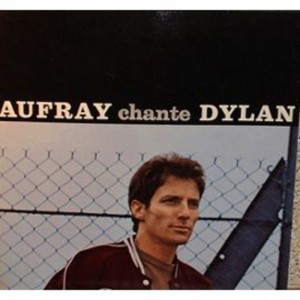Orlando: les gays sont des Juifs ou des Charlie comme les autres
Ciblés ou généralistes, les attentats islamistes ont la même fin: terroriser A Orlando, Omar Mateen avait le choix: Disneyworld, une cible grand public, ou la boîte gay dans laquelle il a tué quelque cinquante personnes, fait de nombreux blessés et traumatisé bien d’autres personnes. Dans le même esprit, à Paris, les terroristes ont visés à la fois spécifiquement des …
Votations fédérales, cantonales et Ville de Genève
Programme chargé: à nouveau 13 questions pour 11 objets Album complété et article rectifié à 19h15 Pure coïncidence, mais c’est pratiquement comme en février: 5 objets fédéraux (3 initiatives populaires, 2 référendums contre des lois), 4 objets cantonaux (2 initiatives populaires, dont la première comporte un contreprojet et une question subsidiaire, et 2 référendums), 2 objets …
Law enforcement: what true professionalism means. No reading of the Miranda rights? Maybe when it has…
No reading of the Miranda rights? Maybe when it has been done before you don't need repeating. It would of course break the cosy atmosphere, as would the presence of a lawyer (a right under ECHR). I can also see coming the complaint about the secret video recording and the coaching by people outside.
Wouldn't work of course to convict people who stick to the criminal lawyer golden advice: don't say anything (where legal: I guess in many countries in Europe the guy would have been condemned on circumstancial evidence the first time round without much trouble).
Sommet mondial annuel de la gauche de gouvernement.
Society, Economy and State: why the legal framework has to keep up-to-date. The big picture behind …
The big picture behind local authorities struggling with Uber…
Développement d’une excellente réalisation: versé mon obole.
Reshared post from Amira Elgan:
Original Post from Amira Elgan:
The joy and the pain of our month in Cuba
Today I woke up to a wonderful email in my inbox. It’s from one of our new dear friends in Cuba.
She gave me an update about her family and wanted to know about how we are doing. She was warm and loving on her email as she was always in person. She helped us and took care of us like we were family and became our guardian angel from the moment we met her. (She is the person that found lodging for us when the Rolling Stones were in town and many other tourists weren’t as lucky as we were.) I’m not mentioning her name to protect her privacy but I love this woman and I’m grateful that she and I can communicate easily now (the ability to send email for Cubans is a recent development).
Coincidentally, it’s been one month since our arrival in Cancun from Cuba. And though it was just a 50-minute plane ride from Havana to Cancun, the countries are a world apart in many ways.
Cuba is awesome and magical because it’s blessed with a rich history; has some of the most beautiful architecture in the world — much of it in ruins; its beaches are magnificent; and its music like no other. Unfortunately, the country’s oppressive environment is always ever so palpable, though not so much for tourists as it is for Cuban citizens. But I can’t deny that being back in the free world has felt liberating.
It’s hard to put it into words, but if you go there and get to know people while living like a local, a lot gets revealed about what is the reality of life there for Cubans. This is not something you can truly understand or appreciate during a short visit inside the carefully constructed tourist bubble. We certainly didn’t back in 2008 when we were there for the first time.
Today, every interaction with someone is a constant reminder that you’re in a communist country — not just because of what people say or do but because of the challenges and difficulties that people there have to deal with. I think it’s had a tremendous impact on people and its society as a whole. I think that the lack of food, the level of oppression, and severity poverty for many, coupled with a communist and oppressive dictatorship, has created certain social norms that are hard to swallow as a foreigner.
We spent much of our time there talking with our new Cuban friends and many others about the endless ordeal of life in Cuba. We talked about the many changes that have occurred. We asked them about things we encountered constantly that baffled us. We openly shared with them how tiresome and abusive it felt because these things would happen multiple times per day every day we were there.
I’m not trying to sound harsh or judgmental, but our experience in Cuba was tarnished by the fact that people constantly tried to steal from us. It was trivial amounts in some instances but they add up in one day, not to mention in one month. But, frankly, it’s not the money that’s the big deal — it’s is the act of being cheated on and feeling constantly violated. It’s a matter of principle for me. But from some Cubans’ perspective, it’s a matter of survival. And everyone is game — locals and tourists alike — though tourists far more it seemed.
People do this in every way you can possibly imagine. Every interaction you have with someone requiring some kind of fee, payment or money, you can be sure that at least most of the time someone will be trying to rip you off.
We’ve travelled all over the world but we’ve never seen or experienced anything remotely like we did in Cuba. Our friends there told us that they always have to be on their guard because this is a common practice that they too are subject to. It’s what people do there they say, and they worry about what it’s doing to their country’s reputation. It’s a pandemic problem.
The cheating takes place in any way people can come up with — it’s a very scheming and creative process to be sure. Conning and stealing are the norm and a way of life for many there — and tourists the main targets.
For example, when you ask for the check at a restaurant, the servers might pretend they’re adding the amount and then just tell you the amount without presenting an actual itemized bill. In that instance, it might mean they’re not only trying to rip you off by charging more than the menu prices but likely also pocketing the entire amount and essentially stealing from the restaurant too. This happened to us many times but I was advised by friends to always demand an itemized bill. But when we got the check, it would have higher prices than what the listed prices on the menu. Most of the time, I would just ignore that, unfortunately, to add insult on top of insult to injury, they would also bring us less change than they were supposed to give us.
When we visited Viñales, our room was only $20 per night. It was a tiny claustrophobic room but the only room available in town at the time so we considered ourselves lucky to get it. The lady did a small load of laundry for us. I asked her about her rates but she said she didn’t know because it depended on the items and the weight. It typically costs between 5.00 and 10.00 CUCs for a large load so I didn’t think much of it. But when I got our laundry back and asked for the cost she said it was 26.00 CUCs (roughly $30 US at the time, slightly more than the average monthly cuban wage and more than the cost of the room). Once again, we got ripped off and there was nothing we could do about it other than making sure to demand a price in advance in the future.
Taxi drivers are notorious for overcharging. If you pay with a large bill they give you less change and make up a reason for charging you more. Every exchange of money you make, you can count being overcharged and also receiving less change than your are due back. You have to be vigilant any time you have money exchanges in any form. It’s very stressful, especially for Americans whose credit cards and debit cards are not yet accepted at banks because Cuban and US banks are still not linked. So we knew that our funds were limited as we had brought 4,000 Euros to last us for the month. We also had prepaid for half of our lodging already before leaving the US as we booked through Airbnb.
I went to several international banks to check and they tried the cards but informed me that the banks were still not linked at the time. We read in guidebooks that some banks might work but that was sloppy writing with no fact checking.
Cubans don’t trust other Cubans and our friends gave us all kinds of tips of how to protect ourselves. t’s a society where generally no one trusts each other and that manifests in everyday life. But it’s really tiresome to always expect to be ripped off and have to be on your guard. I don’t think that this is a first world problem or that I’m just a whiny American. It’s something that really troubles the honest Cubans who are also victims of the widespread practice.
Another example of mistrust among Cubans is the fact that Cubans have to check in their purses, bags and backpacks any time they go into a grocery store or any kind of large store. This is to prevent shoplifting. The grocery stores are government owned but they don’t trust their own citizens. I had check my bag every time I went to the store to buy water. And every time I went to get my bag back, the attendant wouldn’t release it until I paid 1 CUC, which was about one Euro at the time. They didn’t just want a tip, they demanded a payment dictated by them for the return of my own property. I had no choice, I had to check in my bag and pay to get it back. They literally hold your bag hostage until you pay the ransom.
This happened on daily basis and it just felt like such an assault. I think I would have been disregarding if it had happened just a couple of times but it was so constant it simply is too much to ignore. This happened everywhere we visited and in different towns.
I could go on and on about many examples of these types of mini extortions. But these pale in comparison to the constant harassment by jineteros, which come in all varieties you can imagine. They’re very aggressive and will get on your face and on your way to get your attention. This happens at restaurants, bus stops, bus terminals, on the street or anywhere. They’ll pretend to befriend and before you know you’ve lost some money. There are many people everywhere trying to con you or rip you off and they’ll lie to you and steal from you and often you won’t even know how it happens. It’s brutal.
In many ways, spending an entire month in Cuba made us more appreciative of basic things we never even think about when we’re in the United States or even in the many other countries we’ve visited all over the world. Cuba is way more different and the differences are constant and always evident. We’ve been to other Latin American countries as well as Turkey and Morocco where things might not be as modern as in the US but are still more functional than everything we encountered in Cuba.
It helped us understand how much we take modern day conveniences, abundance of good services and general social and ethical behavior for granted. Basic things in Cuba can be highly dysfunctional and just plain broken. I’m not just talking about the economy, which is crumbling. I’m also talking about things that might seem trivial, like having toilettes that work. (They lock Cuban tourist bus bathrooms so you can’t use it, then charge up to a $1 to use the bathroom at the bus stations they stop at, and it’s clear that these bathrooms haven’t been cleaned in months or repaired ever — the government employs someone to take money but not to clean.). I’m really grateful now being in a place with toilets that have toilet seats to sit on, seat covers dispenser, toilet paper, soap to wash your hands with and even paper towels to dry your hands. This is not trivial when you know that eating something that will cause you shooting diarrhea is inevitable no matter how hard you try. The whole thing is excruciatingly painful in every way you can imagine.
The Cuban people, including the people who actively and knowingly engage in scams, rip-offs, shockingly rude « customer service » and all the rest are the true victims, not lucky Americans. The Cuban government set the example from the beginning, literally stealing every house, apartment, business, factory and all the rest from whoever owned it, making itself the sole owner. If a Cuban gets a job in Cuba working for a foreign government or company and is paid a salary of, say, $5,000 a month (which is a low salary for many professionals by international standards), the Cuban government literally steals all this salary and then pays the worker $25 per month, or something similar. The Cuban government is a kleptocracy.
They even steal Cuban history. Everyone you go in Cuba, every monument, billboard or plaque — and nearly every book — is about the propaganda history of the revolution. The tiny number of people who founded Cuba (who are still running the country) say, in essence: « There is no history except the history that we, personally, were involved in. »
Living in an apartment with a spacious bathroom with plenty of water to shower, but more importantly, sufficient water pressure to take a shower (let alone to wash my long hair) makes feel like I’m living in the palace of Versailles. And don’t even get me started about the air quality. The air in Cuba is usually filled with heavy car exhaust and often toxic gas that kills mosquitoes as well as your lungs. It was very difficult during the entire month to find any clean air to breath. It made us all very sick and took a couple of weeks to get over it.
It also feels ridiculously conspicuous the way people smile and how friendly and polite every single person seems to be in Cancun, at least, in the real Cancun where we live (the hotel zone, just 20 minutes away, is a whole different story and for another post). All the friendliness and politeness we’ve encountered all the time almost feels overwhelming — no really, we feel giddy with delight. I definitely don’t miss the gratuitously grumpy and scornful Etecsa women with the skin tight mini skirts and fishnet pantyhoses. I used to wonder if there was a correlation between their skimpy uniforms and their nastiness.
I’m happy we lived in Cuba for a month. It was the experience of a lifetime and quite unforgettable. I actually absolutely love it there.
Still, 60 years of oppression under a communist dictatorship has caused a lot of havoc and has had horrible and unintended consequences — especially its warping effect on the Cuban psyche. I hope that things get better. But I have a feeling they’ll get a lot worse before they realize they need another revolution to undo the damage of the Castro regime.
For now, we’re living in a really awesome neighborhood in Cancun that’s clean, modern and safe. Everyone we encounter is friendly, polite and fair. We have a few more weeks here and plan to explore the Yucatan Peninsula a little more. It’s also nice to be just a short and cheap cab or bus ride to the wonderful beaches. And I have to say: After Cuba, Mexico feels like paradise.
(Picture of Plaza Vieja in Havana Vieja, Cuba)
#Cuba #Havana #Havana Vieja #travel #digitalnomad
Cool Britannia: la réconfortante sagesse de l’électorat britannique
Un travailliste musulman maire de Londres, une conservatrice lesbienne leader de l’opposition en Ecosse Pas de mauvaise surprise: Sadiq Khan a été confortablement élu maire de l’agglomération de Londres (8,5 millions d’habitants). S’il y a une ville suffisamment cosmopolite pour que la tentative d’agiter la carte anti-musulmane, comme l’ont fait pour leur honte les conservateurs, …
Understanding the modern economy. i.e. capitalism, if you hate it.
i.e. capitalism, if you hate it.
De Johnny Hallyday à Yves Jamait en passant par Henri Tachan, comment les temps ont changé.
Un article un peu différent de ce que j’écris habituellement, publié d’abord Medium – une plateforme qui réinvente et dépasse le blog et que j’apprécie déjà comme lecteur. Un design minimaliste, un emploi d’une simplicité désarmante et une vraie priorité au contenu: indiqué tant pour le texte unique de toute une vie que pour les irrépressibles scribouillards.
A fxv, pour l’inspiration
 Hugues Aufray chante Bob Dylan. Mon premier disque 33 tours — je l’ai toujours, quelque part — , un cadeau de ma grande sœur pour mes dix ans (1965).
Hugues Aufray chante Bob Dylan. Mon premier disque 33 tours — je l’ai toujours, quelque part — , un cadeau de ma grande sœur pour mes dix ans (1965).
A côté de la radio, omniprésente, c’est ainsi qu’on écoutait de la musique à la maison: mes sœurs étaient respectivement fans de Johnny Hallyday et Adamo, mon frère de Jean Ferrat (il a tous les disques).
Mais pour Brassens, Brel ou Barbara, il avait déjà passé à une autre technologie: le magnétophone, un splendide appareil qui trônait dans sa chambre.
Il fallait emprunter les disques aux copains, et enregistrer en temps réel en veillant au réglage du son. Une seule copie destinée à l’usage personnel. Mais indéniablement pratique pour éviter d’acheter les disques, en écouter bien davantage que mon frère aurait pu alors s’en payer. Etait-ce déjà une violation du droit d’auteur? Je ne crois pas que cela nous ait traversé l’esprit, le résultat semblant bien davantage le fruit mérité d’un artisanat laborieux.
D’ailleurs j’y songe: quand le chœur de mon collège a chanté Le Pénitencier, nul ne s’est soucié de payer les droits certainement dus à la Sacem…
Dans les années 70, j’ai découvert Henri Tachan à la radio. J’ai acheté des disques puis des CD, assisté à des concerts — jusqu’à créer, bien plus tard à l’âge de l’Internet, le site dédié qui n’existait pas encore.
Entre-temps la minicassette avait fait son apparition, à la fois comme concurrente du disque (la musicassette) et cmme support de bande magnétique bien plus commode à manipuler. De cette période me semble aussi dater la première mise en vente de produits de consommation ouvertement destinés à faciliter les copies illicites: le magnétophone avec deux cassettes côte-à-côte.
 Le dernier album de Tachan date de 2007: il est vendu non seulement en CD, mais aussi en ligne comme il se doit, et même chanson par chanson. Mais les temps ont changé: il est presque méritoire de les acheter, entre site de téléchargement sauvage et envoi en deux clics par courriel.
Le dernier album de Tachan date de 2007: il est vendu non seulement en CD, mais aussi en ligne comme il se doit, et même chanson par chanson. Mais les temps ont changé: il est presque méritoire de les acheter, entre site de téléchargement sauvage et envoi en deux clics par courriel.
En 2014 j’ai entendu Yves Jamait en concert et voulu mieux le connaître: j’ai acheté son premier album sur Google Musique et je voulais continuer. Sur quoi un ami en ligne m’a dit: “Attends, je les ai tous sur OneDrive, je te partage mon répertoire!” Comme le chante Tachan, “A une pareille invite, qui refuse, qui de vous?”
Sur ce répertoire partagé, j’ai aussi retrouvé des 33 tours que je possède mais ne peux plus écouter (Boris Vian, Ogeret chante Aragon): j’ai fait taire ma mauvaise conscience pour les télécharger.
Je connais et comprends bien sûr tous les arguments sur le changement de paradigme de l’économie numérique: il y a d’autres moyens de monétiser une production artistique que de contrôler sa diffusion, mieux vaut accompagner le mouvement et s’adapter.
 Je voudrais convaincre Tachan, dont la plupart des albums sont aujourd’hui indisponibles, de récupérer ses droits et de remettre ses chansons sur le marché sous format numérique. Mais bien sûr des dizaines sont à disposition gratuitement sur YouTube, et parfois avec une réelle plus-value visuelle.
Je voudrais convaincre Tachan, dont la plupart des albums sont aujourd’hui indisponibles, de récupérer ses droits et de remettre ses chansons sur le marché sous format numérique. Mais bien sûr des dizaines sont à disposition gratuitement sur YouTube, et parfois avec une réelle plus-value visuelle.
Dans la génération de mes neveux et nièces, l’accès payant, l’entrave à la copie suscitent une indignation non feinte. Et pourtant je pense à Christophe Régnier, qui a passé plusieurs années de sa vie à surmonter tous les obstacles pour réaliser l’unique DVD de Tachan en concert (22 chansons, à Besançon en 2008), et un splendide documentaire: Henri Tachan, le prix de la révolte. Le tout est en vente en ligne pour 30€. Un ami bien intentionné m’a depuis envoyé les fichiers vidéo, ma foi bien pratique.
 Et le sexe, dans tout ça? J’ai aussi vécu le Polaroid, qui a permis les premières photos pornos privées: plus de film à envoyer au développement… Le numérique et plus précisément le smartphone a rendu la chose bien plus commune. Et pourtant bien peu sont celles et ceux qui tiennent les mêmes théories sur le droit à la copie et à la diffusion illimitée de ces œuvres… (Bon, en fait je voulais surtout tester pour ce premier article sur Medium la facilité dont j’ai lu ici qu’il fallait la revendiquer, mais ne pas en abuser!)
Et le sexe, dans tout ça? J’ai aussi vécu le Polaroid, qui a permis les premières photos pornos privées: plus de film à envoyer au développement… Le numérique et plus précisément le smartphone a rendu la chose bien plus commune. Et pourtant bien peu sont celles et ceux qui tiennent les mêmes théories sur le droit à la copie et à la diffusion illimitée de ces œuvres… (Bon, en fait je voulais surtout tester pour ce premier article sur Medium la facilité dont j’ai lu ici qu’il fallait la revendiquer, mais ne pas en abuser!)





 S'abonner à ce flux
S'abonner à ce flux S'abonner par email
S'abonner par email

